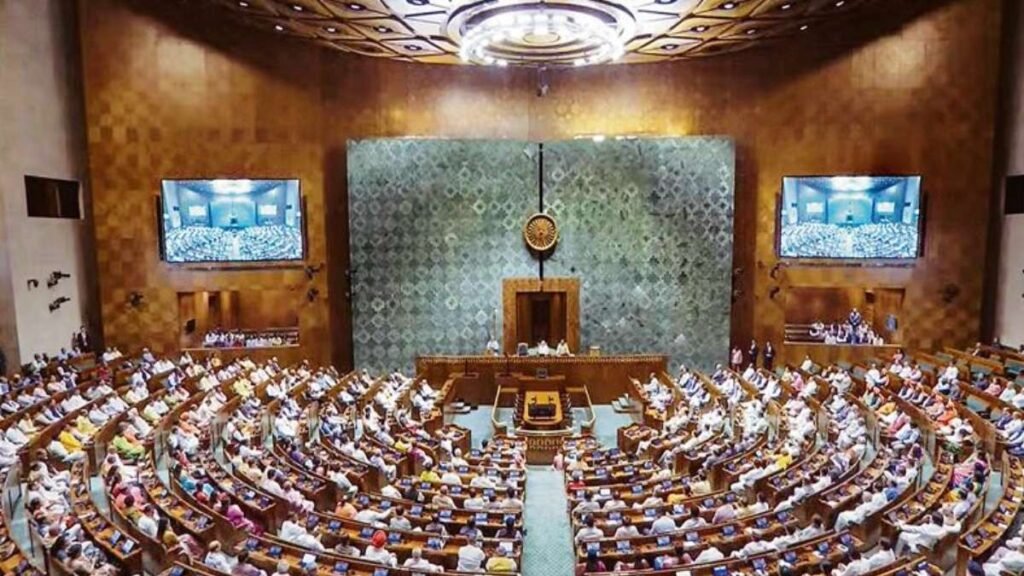A report of the analysis, which was conducted by ADR and National Election Watch (NEW), was released on Tuesday. It sheds light on the performance of the 17th Lok Sabha and its members.

The Association for Democratic Reforms (ADR) in its latest report said a total of 222 bills were passed in the 17th Lok Sabha and 45 of these were cleared the same day they were introduced in the House
Some of these bills are –
- The Jammu and Kashmir Appropriation (No. 2) Bill
- The Appropriation (Vote on Account) Bill,
- The Central Goods and Services Tax (Amendment) Bill, 2023,
- The Appropriation (Vote on Account) Bill
- The Election Laws (Amendment) Bill, 2021
240 bills were introduced during the tenure of the 17th Lok Sabha and 222 of them were passed, the report said.
Additionally, 11 bills were withdrawn and six are pending. Only one bill received the President’s assent.
According to the data, 45 bills were passed the same day they were introduced in the House.
On average, an MP asked 165 questions and attended 189 of the 273 sittings.
MPs from Chhattisgarh had the highest average attendance, with 11 representatives from the state attending 216 of the 273 sittings.
Conversely, Arunachal Pradesh had the lowest average attendance, with two of its MPs attending only 127 sittings.
The analysis further delves into engagement levels across states and political parties.
MPs from Maharashtra were the most vocal, with 49 representatives asking 315 questions each on average. In contrast, Manipur MPs asked 25 questions each on average.
Among parties, the NCP stood out with five of its MPs raising an average of 410 questions each. On the other hand, two Apna Dal (Soneylal) raised only five questions each on average.
AAP members had the lowest attendance with only 57 sittings on average. Telugu Desam Party (TDP) members attended 229 of the 273 sittings on average.
The report also names 10 MPs who participated actively in parliamentary proceedings, posing the highest number of questions.
BJP’s Balurghat MP Sukanta Majumdar, who asked 596 questions, topped the list.
The majority of the questions revolved around health and family welfare, agriculture and farmers welfare, and railways.
Source: Indiatvnews, wikipedia,
Also Read:
